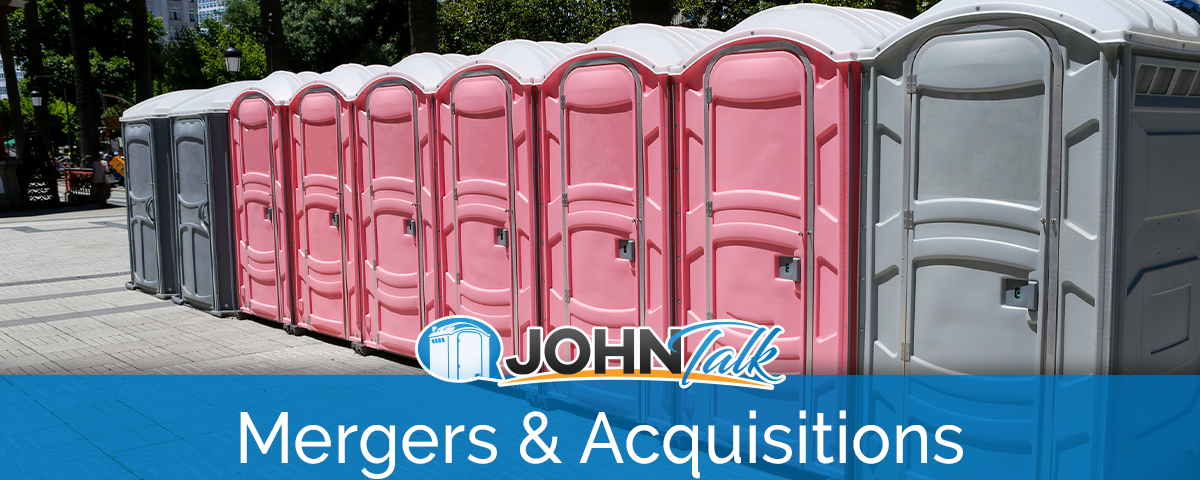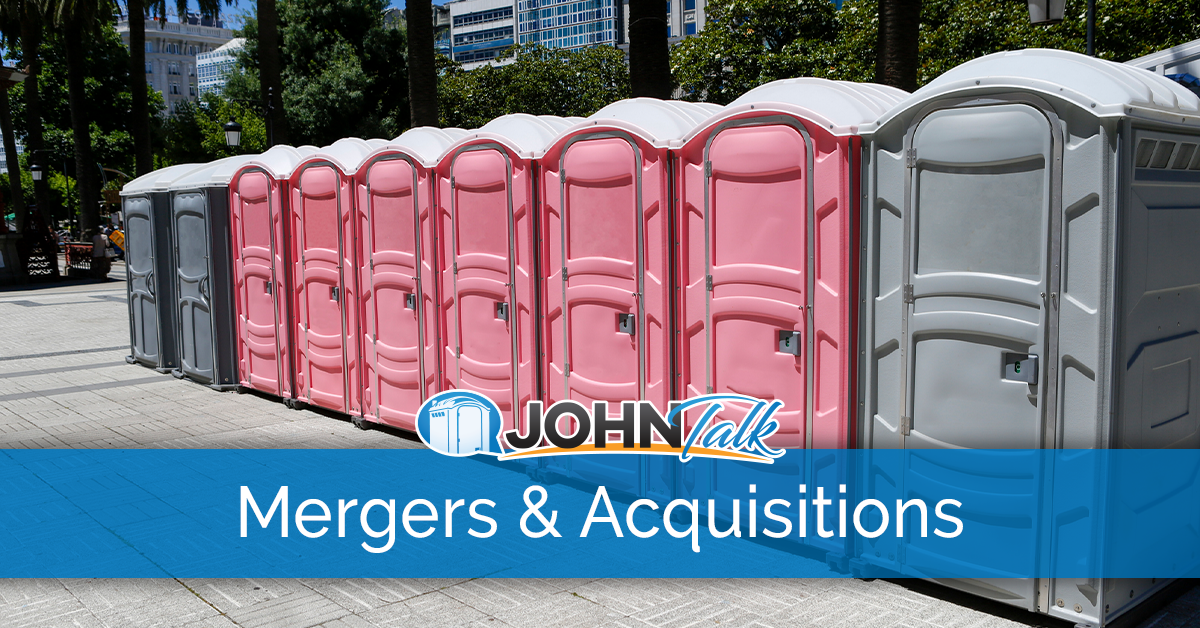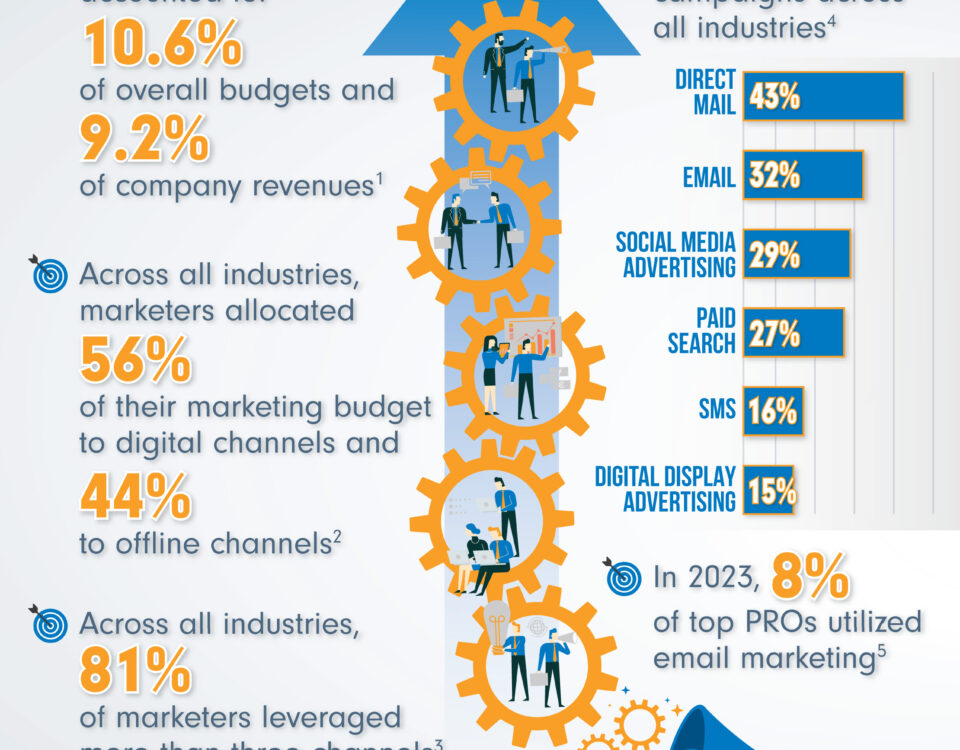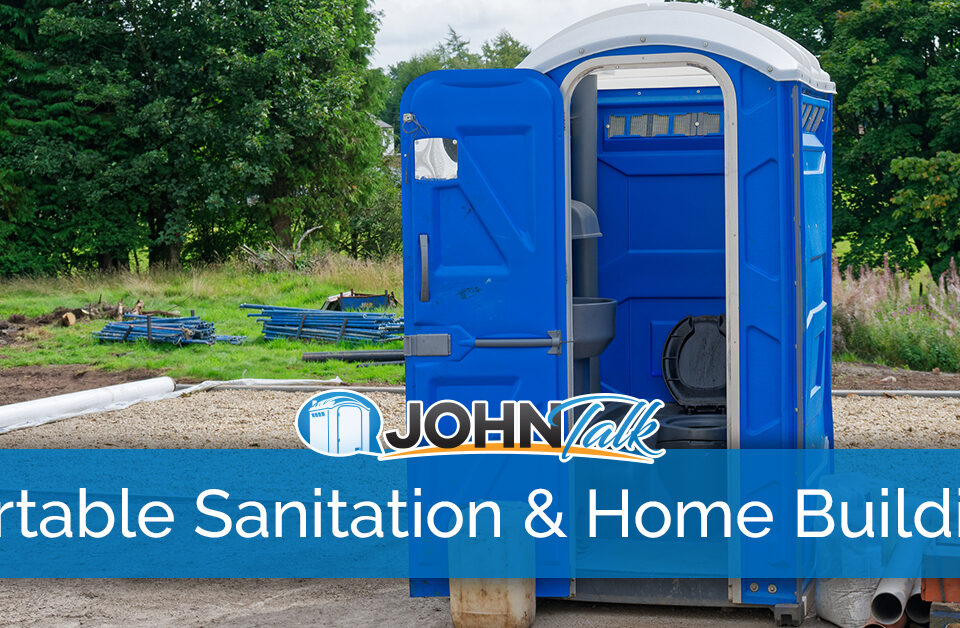
Measuring ROI on Individual Contracts
February 27, 2023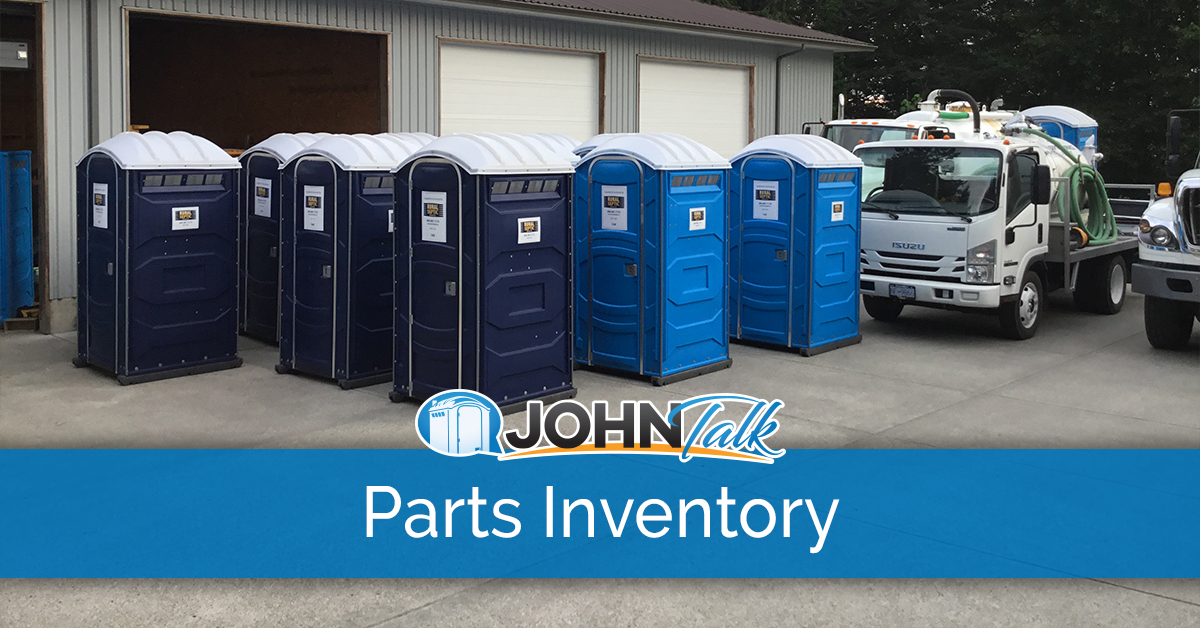
How to Perform a Spring Parts Inventory
March 13, 2023Mergers and acquisitions can be a lifeline for portable restroom rental companies. They can help your business stay afloat, overcome profitability challenges, and even provide a solid exit plan for PROs. While there are advantages to company buyouts or sales, risks exist.
Portable restroom operators should do their due diligence to ensure the best possible outcomes. Explore merger and acquisition activities to learn how these transactions impact the business lifecycle and fit into your strategic process.
Understanding Mergers & Acquisitions Umbrella Terms
The terms mergers and acquisitions are often used interchangeably. But differences exist. In both cases, portable restroom operators can be sellers or buyers. A merger joins two companies, whereas an acquisition is when one company buys another business.
There are several types of mergers. A horizontal merger involves companies in the same industries, like two competitors. A vertical merger combines a business and its supplier or customer, whereas a conglomerate is between organizations in unrelated sectors.
According to Damon Powell, Founder of FMC Advisors LLC, “Most portable sanitation deals are asset purchases where the buyer purchases the assets of the company and its associated goodwill.” Although less common, buyers may also complete a stock purchase by purchasing “the entire business entity.”
Generally, acquisitions occur when a larger, more profitable organization buys a smaller one, which differs from mergers, where the companies may be of equal status. However, sellers and buyers can stipulate requirements as part of the agreement. For instance, sellers may want a guarantee that their staff stays employed. Powell said, “Fortunately, in today’s economic environment with labor in short supply, buyers typically need almost all employees to keep the business running efficiently.”
Knowing When to Pursue M&A Agreements
Mergers and acquisitions can be new opportunities or arise out of necessity. And benefits exist for buyers and sellers, even though both parties want different things from the deal. But there isn’t a one-size-fits-all agreement or an established timeframe. Instead, Powell said, “Deals happen when timing and value match up.” Strategic planning prepares you to act if someone offers to buy your company or an excellent opportunity comes along.
A Desire to Increase Your Income and Market Share
Organic growth can take a lot of work. It involves investment in marketing and sales staff and activities. And there’s no guarantee that your hard work will attract new customers. Purchasing another portable restroom business gives you access to its loyal customer base.
Now, there’s plenty of legal wrangling in the background to ensure contracts transfer over, and you’ll still need to establish relationships with clients to ensure continued business. However, the ability to expand your market to previously unknown clients is a common reason PROs buy another portable restroom company.
In addition, merging two businesses or acquiring a new one can result in economies of scale, allowing PROs to realize cost savings through M&A. The additional sales volume and staff levels may enable them to secure lower rates from vendors and benefit providers. By reducing the costs of doing business while increasing your sales potential, you can build a more profitable company than was possible with your previous business.
When Your Company is Out of Options
Although the portable sanitation industry is less affected by constant technology changes, there are other ways that your business can fall behind. Sometimes, a company relies on a steady but dwindling client base. Others pass a family business to the next generation, only for the new owner to realize outdated practices are affecting profits. Market shifts and new competition can bring your portable restroom company to the brink of bankruptcy.
When faced with substantial costs to upgrade your capabilities or assets, merging or acquiring another business can solve this problem. Another company may already have software and processes for streamlining inventory, assets, and routes. They could have invested in ideas that took off in your market, such as luxury restroom trailers or high-end units. Partnering with them can save your business. Alternatively, you can sell them your portable restroom company instead of closing at a loss.
To Remove a Competitor from the Market
Consolidation occurs when buyers purchase local, regional, or national competitors. Removing a rival gives you a larger slice of the market and several other benefits. According to Powell, “These include expanding your service area to better meet the needs of your clients and creating greater density in your routes which improves profitability.” Also, it “may allow you to raise rates to increase your bottom line.”
Negotiating the right deal puts you in a better position to dominate the market. Powell added that “these buyers have natural cost savings also known as “synergies” when purchasing a competitor.” Growing sales while reducing costs financially benefits your business. Powell said, “growing by acquisition is a well-proven strategy.”
When You’re Ready to Exit the Business
Many PROs use an M&A strategy for succession planning. There are a few ways to go about this. You could agree to stay on for a set time to guide the new business and provide your expertise. Or, you could sell your company outright for a higher sales price than you’d get by liquidating your assets.
In addition, you have some leeway in what you sell. For instance, do you want your company’s employees to stay on? Or, do you prefer to retain property ownership and lease it to the new buyer? With an M&A exit strategy, you can devise terms that fit your needs, and your advisors can be on the lookout for potential buyers who agree.
However, using mergers and acquisitions as an exit strategy requires a long-term vision. To get the best return, you’ll want to have all your ducks in a row and be ready to find a buyer when the market is hot.
To Diversify Revenue Streams
Adding another income stream can help your portable restroom business avoid losses during an industry-wide downturn. It can also help sanitation companies in colder areas, where operations slow to halt during the harsh winter months. In some cases, merging with or acquiring another company allows you to sell new services and products to your existing customers while gaining a new client base.
Consider merging with or buying companies that handle:
- Snow and ice removal
- Solid waste or septic services
- Consumer or business rental equipment
- Event planning
- Temporary fencing
- Event rentals, like decor or even event space
- Landscaping
- Storage containers
Advantages and Drawbacks of Mergers & Acquisitions
M&A transactions have risks and benefits. Due diligence is the best way to mitigate risks while ensuring you come out ahead. Many PROs work with trusted experts and advisors familiar with these types of transactions. They help you identify the pros and cons, understand both companies’ finances and operations, and negotiate satisfactory terms.
M&A Pros
Partnering with or acquiring another business can provide substantial advantages. These benefits can be amplified if you secure a good deal and implement strategies to overcome potential challenges. To profit from a merger or acquisition, you must assess all possibilities and work hard to ensure a seamless transition.
Consider the following benefits of mergers and acquisitions:
- Increase market share: Removing a competitor or expanding to a new location allows you to take a larger share of the market and increase your rental prices.
- Boost brand recognition: With the right approach, a merger or acquisition can show current clients that you’re doing well and help you increase your presence in other areas.
- Tax benefits: In some cases, you can lower your taxable income by acquiring a company’s liabilities.
- Reduce expenditures: You can negotiate better deals with suppliers and gain new technologies and assets without significant capital costs.
- Gain operational efficiencies: Economies of scale can let you double the business without significantly increasing staffing and assets.
- Improve customer experiences: If you acquire a business with better rental units and technologies, you can enhance client communication, payment methods, and service quality.
M&A Risks
The bottom line is that not every deal is as fruitful as it appears on paper. Missteps can leave you owing more money than the combined companies are worth. They can drive away customers or long-term employees. M&As also consume your time, affecting current operations, customers, and staff. Reduce risks by understanding the possible downsides of buying or selling and having a seasoned professional on your side.
Here are a few cons of mergers and acquisitions:
- Compliance issues: M&As are contracts handled at the state level. Follow regulations to a T to avoid problems with forming a new business entity after a merger.
- Over or underpayment: Mergers and acquisitions can take a long time to negotiate and finalize. You may feel pressure to push the contract through and accept less as a seller or pay more as a buyer.
- Poor operational integration: Many benefits of mergers and acquisitions can only be recovered if you plan to integrate services. There are a lot of small details with routes and equipment that need analysis to ensure cost savings.
- Cultural disagreements: Whether bringing in a co-owner or combining workforces, there’s always a risk of the two not jiving. It’s vital to consider the values and culture of the other portable restroom business and have a strategy for resolving issues.
- Legal problems: A lack of due diligence is a key reason M&As fail. Unknown litigation, tax matters, and other details can put your company on the line for unexpected obligations before the ink dries on the contract.
Get the JohnTalk “ALL-ACCESS PASS” & become a member for FREE!
Benefits Include: Subscription to JohnTalk Digital & Print Newsletters • JohnTalk Vault In-Depth Content • Full Access to the JohnTalk Classifieds & Ask a PRO Forum
Click here to learn more.An Overview of the Merger & Acquisition Process
M&A transactions can take many months or even years to complete. In the meantime, you must continue to run your portable restroom business successfully. Due to the lengthy process, it’s wise to start planning early. Third-party experts can assist you with different steps or be there for you throughout the process. Experts may include financial professionals, tax advisors, lawyers, and M&A brokers or advisors.
The various steps may include the following:
- Developing your acquisition strategy and purpose for seeking a merger or acquisition
- Updating your business plan to attract investors or secure financing
- Creating criteria for finding potential companies to partner with, sell to, or acquire
- Searching for sellers or buyers that meet your criteria
- Communicating with likely companies to gauge their interest
- Completing a valuation analysis of your business
- Getting valuation information for the target organization
- Constructing and presenting an initial offer
- Negotiating terms
- Performing due diligence to assess the target company’s operations
- Writing the purchase agreement
- Finalizing the financing details
- Closing the sale and beginning to merge the two companies
M&A Agreement Considerations
Below, we look at various factors that affect mergers and acquisitions. A thorough investigation helps ensure you get everything you want from the deal. It also reduces risks and streamlines post-transaction activities. If you’re beginning to consider mergers and acquisitions as part of your business strategy, think about these aspects.
Know the Value of the Portable Restroom Business
Business valuations are critical to mergers and acquisitions. You should know your company’s EBITDA (Earnings Before Interest, Taxation, Depreciation, and Amortization). Having accurate figures lets you calculate the impact of a merger or acquisition. And if you’re the seller, you’ll want to ensure your valuation is comparable to the buyer’s. Likewise, as a buyer, you need to determine the target company’s value.
You should assess the potential deal after the transaction, along with the current value. Financial projections may include direct and indirect cost savings and revenue increases. Your valuations will guide the final sales price, and the amount of funding the buyer requires. Several valuation methods exist. A qualified business appraiser can help you determine the figures.
Powell recommends thinking about the following when establishing business value:
- Location of the business
- The reputation of the company to be acquired
- The concentration of annual revenue and is any revenue “at-risk”
- Condition of the equipment being acquired
- Profitability of the business
- Annual growth rate
- History of accidents and insurance claims
Understand the Financial Impact
Being financially prepared is critical when buying or merging with another company. You will need to have your financials for lenders and know the cost of doing business after you finalize the transaction. Your options will vary depending on the legal structure of the company you’re acquiring and the type of merger or acquisition.
For instance, an incorporated target company requires payments to shareholders in either cash, stock, or a combination of both. Your deal may also involve your company assuming all liabilities, including those not on the balance sheet. Or, you may purchase assets only.
Powell said typical types of financing for an M&A transaction include:
- 100% cash at closing
- Cash at closing with a hold-back amount
- A combination of cash at closing along with seller financing
- Cash at closing with an earn-out component or any combination of the above
Since tax implications vary widely, evaluating different methods and determining which ones provide the most overall value is essential. Your CPA or tax advisor can help you understand the impact on your taxes and annual expenditures.
Investigate Potential Issues
We can’t stress the importance of due diligence enough. During your investigation, issues may arise that significantly impact the deal. Consequently, you should know when to walk away from a merger or acquisition. The potential gains may not outweigh the legal liabilities or reputational issues.
Components of due diligence include:
- Good standing: Contact the entity formation state and any foreign states where the target company is registered to do business. It should be current with filing and fee requirements.
- Reputation: A target company may go to great lengths to hide the fact that vendors and commercial customers won’t work with them. Analyze their reputation with customers, regulatory agencies, and vendors to ensure you can overcome any issues.
- Uniform Commercial Code (UCC) filings: Find out if the target company is a secured creditor or debtor, which impacts its financial condition.
- Legal issues: Ensure that the target company isn’t party to any lawsuits or other legal matters that would transfer liability to you after purchasing.
- Business licenses: Review all local, state, and federal licenses and permits to ensure the company can legally operate.
- Valuation and accounting errors: Assess financial reports with a critical eye. Mistakes can undermine an M&A’s appreciated value.
- Intellectual property assets: Some portable restroom operators have copyrights, trademarks, or patents. Confirm they have legal protection and aren’t infringing on other intellectual property assets.
- Anti-money laundering: Although rare, it’s essential to verify that target business owners haven’t done business with individuals or companies that the U.S. has sanctioned.
Think About the Transfer Process
There are several steps to transferring ownership and ensuring legal compliance. You may need to register changes with states, follow corporate laws (for incorporated businesses), or get approval from regulatory authorities. These activities can take months and seriously delay the transfer process. Remember to factor in dissolving your old company, opening new bank accounts, and reapplying for permits and licenses.
Consider Professional Assistance
If you’re considering a merger or acquisition transaction, working with an M&A advisory or brokerage firm with experience with your company’s size and location can streamline the process. They can help you find businesses for sale and buyers for your portable restroom company. Likewise, they can handle many other M&A details, giving you the time to run your existing business.
Look for advisors who understand the sanitation industry and focus on your needs. For instance, FMC Advisors attends the Portable Sanitation Association International’s Annual Convention & Trade Show and doesn’t require any upfront fees. They excel at negotiating but also provide practical advice tailored to your situation.
Merger and acquisition advisors and brokers assist with:
- Finding legal and financial professionals
- Business valuation
- Developing a marketing strategy
- Vetting potential buyers or sellers
- Arranging finances for the deal
- Making and negotiating offers
- Structuring transactions
- Drafting deal and legal terms
- Coordinating closing activities
Final Word: Think Strategically and Start Early
Few portable restroom owners think about mergers and acquisitions when starting their businesses. However, market, economic, and life changes can leave you in a challenging position or bless you with the ability to build an empire. Powell suggests buyers “start gathering information now or search for advisors who can assist you with the process.”
Additionally, check out available acquisitions, even if the timing isn’t right. Doing so can help you “gain valuable knowledge by going through the process.” Conversely, “you may find the opportunity is too good to pass up.”
Looking to Take Your Portable Restroom Business to the NEXT LEVEL? Download our FREE Guide: “Your Guide to Operating A Portable Restroom Business.”
Thinking About GETTING INTO the Portable Restroom Industry? Download our FREE Guide: “Your Guide to Starting A Portable Restroom Business.”


